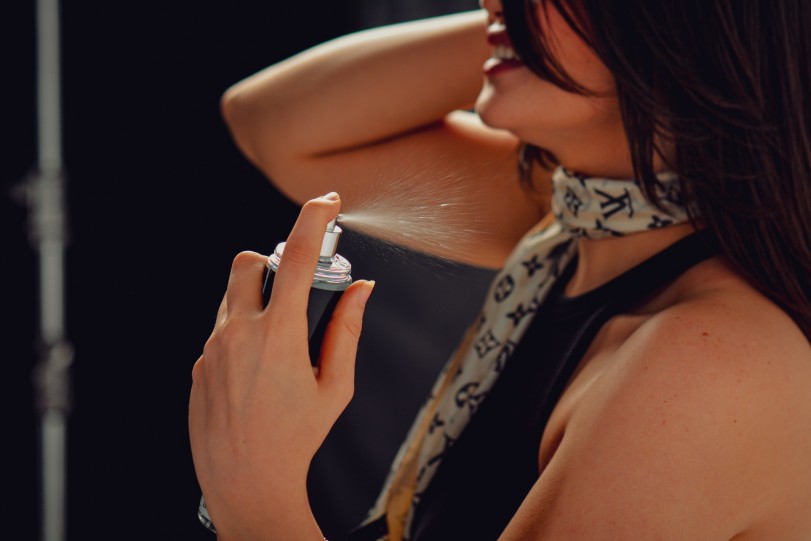
Representation of a woman spraying perfume.
Have you ever noticed how a particular perfume smells different on various individuals? The secret lies not only in the perfume itself but also in various aspects such as the skin type and pH level. Understanding how these interact with fragrances can help unlock the mysteries behind why perfumes smell differently on different people.
One crucial factor that influences the perfume scent and its longevity on your body is your skin type -- whether it's dry, oily, or somewhere in between.
According to New York-based perfume line Petite Histoire, dry skin tends to absorb and dissipate fragrances more rapidly, resulting in a shorter duration and reduced intensity of scent. Conversely, oily skin can prolong the longevity of perfumes, amplifying their presence and allowing them to linger longer.
For those with dry skin, it's advisable to moisturize before applying perfume. Hydrated skin provides a better canvas for fragrances to adhere to, enhancing their staying power and ensuring they last throughout the day.
Another critical aspect to consider is the pH level of your skin. The pH, which measures the acidity or alkalinity of a substance, plays a significant role in how fragrances develop and evolve on the skin's surface. The skin's pH is influenced by a protective layer called the "hydrolipidic film," which consists of water and sebum.
The pH scale is a numerical measure of acidity or alkalinity, spanning from 1 to 14. A pH of 7 signifies neutrality. Values lower than 7 indicate acidity, and values higher than 7 indicate alkalinity.
Perfume brand Sylvaine Delacourte emphasized that supple skin with a balanced pH tends to hold fragrance more effectively.
According to Petite Histoire, a higher pH level in the skin, indicating greater alkalinity, can enhance the sharpness of a scent, whereas a lower pH level, suggesting increased acidity, may impart a sweeter fragrance.
However, individuals with acidic skin may notice that fragrances appear to be less potent, while those with alkaline skin might experience the same scent or more pronounced.
Given the multitude of factors that influence fragrance performance, finding the perfect perfume for your skin can be a nuanced process. Experimenting with different scent families, concentrations, and application techniques can help you discover fragrances that resonate with your unique skin chemistry.
Furthermore, seeking out fragrance samples or consulting with perfume experts can provide valuable insights into which scents are best suited to your skin type and pH level. By taking a holistic approach to perfume selection and application, you can enhance your olfactory experience and enjoy fragrances that truly complement your individuality.

